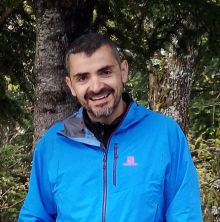 Digital storytelling and the narrative turn in psychology: Creating spaces for collective empowerment
Digital storytelling and the narrative turn in psychology: Creating spaces for collective empowermentAlexios Brailas
In this article, we propose a model that combines digital storytelling with narrative practice to create a facilitated peer-to-peer experiential learning space for collective empowerment. This model was inspired by an educational intervention that utilized participatory digital comic strip making to raise students’ awareness of bullying and its consequences.
Read more... Community-Level Resources Bolstering Resilience to HIV/AIDS: Perspectives of Middle-Aged and Older Men Who Have Sex with Men Living with HIV/AIDS
Community-Level Resources Bolstering Resilience to HIV/AIDS: Perspectives of Middle-Aged and Older Men Who Have Sex with Men Living with HIV/AIDSRenato M. Liboro, Tammy C. Yates, Charles Fehr, George Da Silva, Francisco Ibañez-Carrasco, Andrew D. Eaton, Daniel Pugh, Lori E. Ross, and Paul A. Shuper
The aim of this qualitative study is to identify community-level resources that bolster resilience to HIV/AIDS based specifically on the perspectives and lived experiences of middle-aged and older (MAO) men who have sex with men living with HIV/AIDS.
Read more... Assessing Feminist Community Psychology Pedagogy
Assessing Feminist Community Psychology PedagogyMichele M. Schlehofer, Yuki Okubo, and Dominic D. W. Williams
Feminist pedagogy and community psychology share many ideological similarities, including an action-oriented approach to social problems, a focus on the voices of marginalized communities, and an emphasis on empowerment. This article presents focus group findings from seven students who took an undergraduate community psychology course taught with FCPP, to better understand the impact of this teaching approach on their educational experiences.
Read more... Reverse Innovation in Mental Health: Review and Recommendations
Reverse Innovation in Mental Health: Review and RecommendationsChristine Ngaruiya, Kunmi Sobowale, and Anniyizhai Annamalai
This paper presents a commentary and literature review examining the status quo on Reverse Innovation in mental health. Barriers to knowledge exchange between Low- and Middle-Income, and High-Income country partners are discussed, and potential solutions are presented.
Read more...Community psychology practitioners, when they are open to receiving the gifts of guidance and honesty from the communities they serve, have such a unique opportunity to perpetuate a cycle of growth rather than privilege and oppression.
Nataka Moore and Tiffany McDowell
Most needs/asset maps are static in that they look at what the needs and assets are of the community at the current time frame. Community residents, researchers, public health care workers, and activists have the opportunity to use the Community Asset and Needs Culturalgram (CANC) as an alternative approach to assessing the needs and assets of a community.